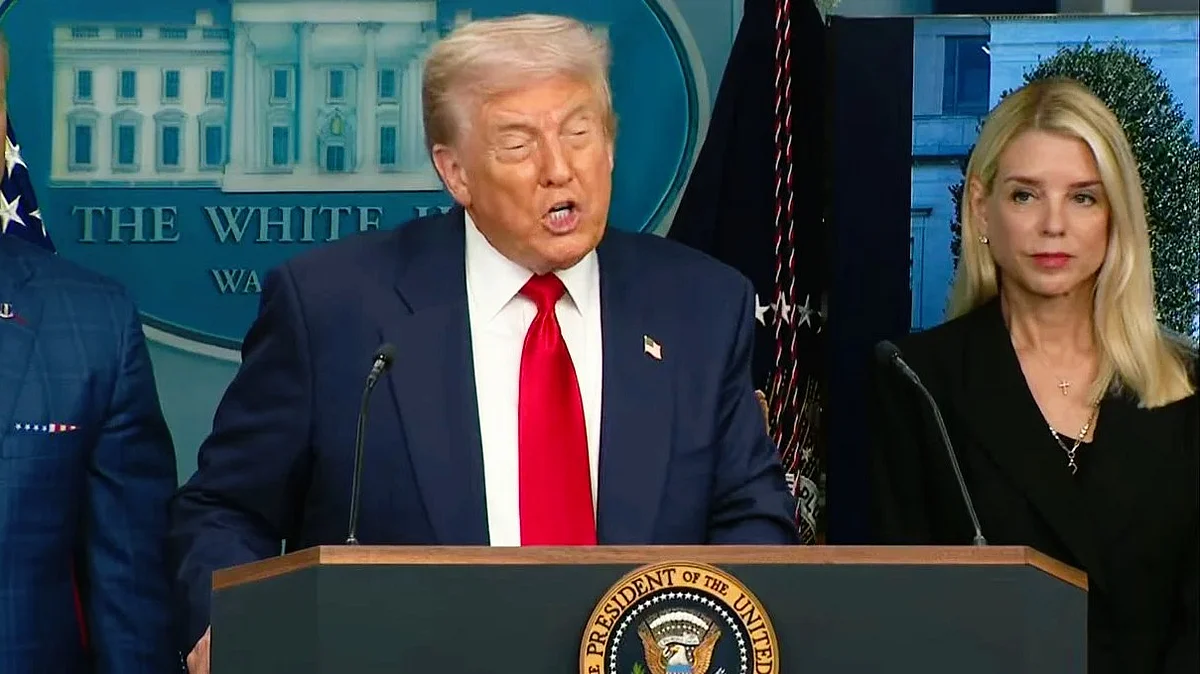Trump places Washington police under federal control in extraordinary move
Trump also announced on Monday that he is deploying the National Guard across Washington DC

In an extraordinary escalation of federal control, US President Donald Trump announced on Monday that he is deploying the National Guard across Washington DC, and seizing command of the city’s police department — despite the fact that the city’s own mayor reports crime is falling.
The Republican president declared a formal “public safety emergency”, invoking extraordinary powers to wrest control of local law enforcement. In a move that startled Constitutional experts, Trump compared crime rates in the US capital to those of Baghdad, Brasília, and Bogotá — capitals of nations that have experienced far higher levels of violence and instability — as though to justify an intervention that sidesteps Washington’s elected leadership.
At a White House briefing, Trump also revealed his administration had begun clearing homeless encampments “from all over our parks, our beautiful, beautiful parks.” His rhetoric was blunt: “We’re getting rid of the slums, too,” he said, adding, “The US will not lose its cities, and Washington is just a start.”
Federal takeover of policing
Under Trump’s plan, US Attorney-General Pam Bondi will assume direct responsibility for Washington’s Metropolitan Police Department. The president, veering between talk of law and order and aesthetic grievances, also complained about potholes and graffiti, calling them “embarrassing”.
The scale of the deployment is significant. At least 500 federal law enforcement officers, along with the National Guard, will flood the capital’s streets. These include more than 100 FBI agents, 40 Bureau of Alcohol, Tobacco, Firearms and Explosives agents, and personnel from the Drug Enforcement Administration, Immigration and Customs Enforcement, and the US Marshals Service.
Such a move raises profound questions about the limits of federal power, the autonomy of Washington’s local government, and whether the administration is conflating visible signs of poverty with criminality.
Legal and political backdrop
Washington DC is a unique jurisdiction — a congressionally created federal district without full statehood rights. Under the District of Columbia Home Rule Act, the president has the authority to invoke Section 740 to deploy the National Guard without the mayor’s consent. Trump confirmed he was doing precisely that.
This isn’t the first time a president has sent in federal forces to the district, but critics point out that this instance is not tied to an immediate crisis, riot, or natural disaster — instead, it appears driven by Trump’s own political agenda and public messaging strategy.
Mayor Muriel Bowser, a Democrat, questioned the wisdom and legality of deploying the Guard to enforce city laws: “I just think that’s not the most efficient use of our Guard,” she told MSNBC, adding that the federal government could instead help by funding more prosecutors or filling the 15 vacant judicial posts on the DC Superior Court, some of which have sat empty for years.
She dismissed Trump’s depiction of Washington as “one of the most dangerous cities anywhere in the World” as “hyperbolic and false,” pointing out that violent crime has dropped since the spike in 2023.
Targeting homelessness
Trump has also made it clear that homeless residents are central to his “cleanup” campaign — though his plans for them are murky and deeply concerning to advocates.
Also Read: Life after a bromance gone wrong
“The Homeless have to move out, IMMEDIATELY,” he wrote on Sunday. “We will give you places to stay, but FAR from the Capital. The Criminals, you don’t have to move out. We’re going to put you in jail where you belong.”
The president has not specified where displaced individuals would be sent or how housing would be arranged. Critics warn the policy risks creating a humanitarian crisis while doing nothing to address the root causes of homelessness.
An emboldened federal posture
Last week, Trump ordered federal law enforcement agencies to maintain a heightened presence in Washington for at least seven days, with the possibility of extension. This included personnel from the Secret Service, the FBI, and the US Marshals Service — more than 120 officers in total — before Monday’s larger mobilisation was announced.
The president has openly mused about ways to permanently bring the district under tighter federal control, calling its crime rates “ridiculous” and its streets “unsafe”. His comments came after a high-profile official from the Department of Government Efficiency was assaulted in the city, an incident he has repeatedly cited as evidence for his takeover.
For opponents, however, this is about more than crime. It is about the normalisation of federal overreach, the dismantling of local authority, and the use of force to shape the public image of safety — even where statistics suggest the danger is overstated.
Washington’s mayor, its residents, and constitutional scholars now face a chilling question: if the president can seize control of a city without genuine emergency justification, what’s to stop such power from being used elsewhere?
Follow us on: Facebook, Twitter, Google News, Instagram
Join our official telegram channel (@nationalherald) and stay updated with the latest headlines
